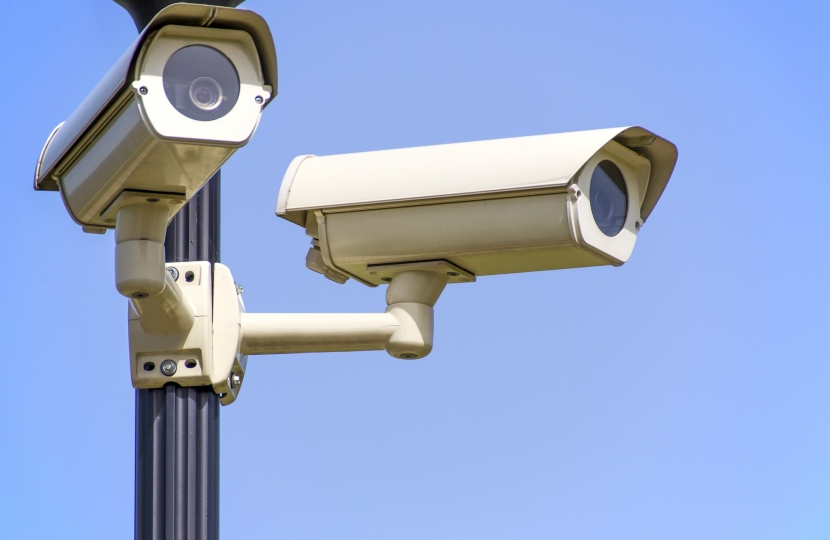
Funding for public space CCTV will be maintained after Cherwell District Council scrapped plans to end their share of financial support for the provision. The move comes after Thames Valley Police and Crime Commissioner Matthew Barber agreed to a wholesale review of closed-circuit television monitoring across the region.
Andrew McHugh, District Councillor for the Adderbury, Bloxham and Bodicote Ward and Chairman of the Cherwell Community Safety Partnership, said: “The proposal to withdraw funding for CCTV provision was never set in stone. The Council has no statutory requirement to contribute to CCTV provision but has done so to date (with a contribution of around £99,000 per year) because we know it is an important tool for tackling anti-social behaviour and helping residents feel safe, particularly in our town centres and public spaces.
However, the systems locally have not been updated despite technological advancements in artificial intelligence (the ability of a computer to do tasks that are usually done by humans) that would make the provision more efficient and effective.
Across the Thames Valley, much of the recurrent budget for CCTV is staffing costs for active monitoring of the system. According to the College of Policing, active monitoring makes CCTV most effective but this requires someone to be looking at the footage at the right moment in time. Artificial intelligence on the other hand analyses live video removing the need for human monitoring.
Basic applications of AI are now part of our everyday lives – digital voice assistants answer questions on your Alexa and automatic number plate recognition (ANPR) raises a charge for the length of time you have parked in a car park. When it comes to surveillance, AI uses software programs to analyse images from CCTV cameras in order to recognise out of pattern behaviours, allowing for passive monitoring of CCTV systems.
The same pattern recognition algorithm can also be used to automatically scan hours of CCTV footage to look for evidence of a crime after the event and this can be done in a fraction of the time taken by humans and with far greater accuracy.
Introducing this technology into the CCTV system in the Thames Valley would transform surveillance locally, making the service more effective and improving policing outcomes. I raised this proposal with Matthew Barber who assured me he would look into these new technologies as part of a comprehensive review of CCTV across the region. In recognition of the support for a review by the Commissioner, the proposed cut to CCTV services has been withdrawn from the Council’s budget for this financial year.”



